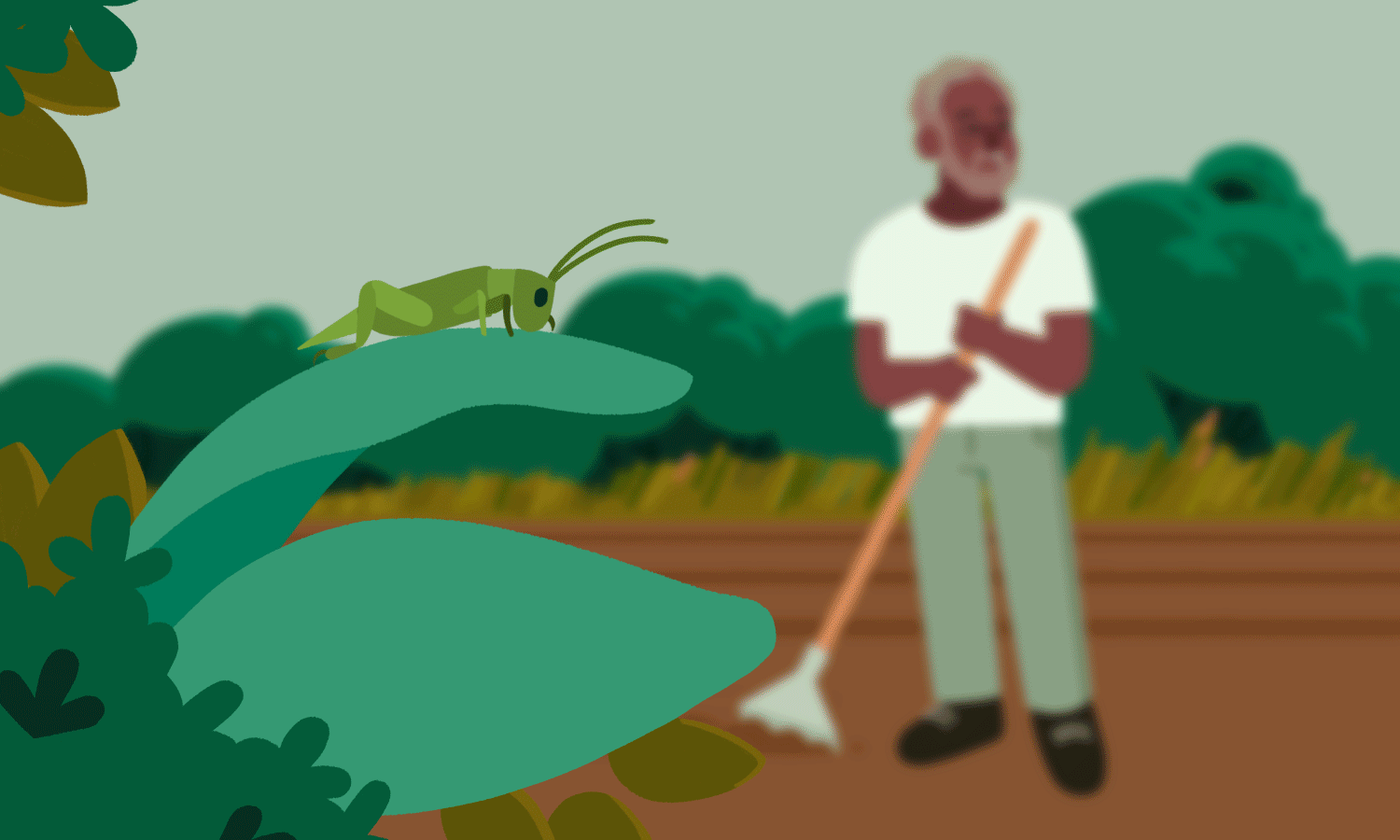This story was reported in partnership with NPR's Next Generation Radio — finding, coaching and training public media's next generation.
A house in the heart of the Tower Grove neighborhood stands out with its lush green landscape.
Native fruit trees line the edges of the fence, a salad garden sits in the middle of the yard, and other herbs and vegetables are growing in scattered patches. A beehive is above in one corner and logs — used for the cultivation of mushrooms — are stacked beneath a tree.
Matt Lebon, a foodscaper in St. Louis, is the owner of this “urban food forest,” a type of gardening that focuses on edible and perennial plants. It is the home of Lebon’s business, Custom Foodscaping, which aims to replace traditional ornamental landscaping with edible plants.
This style of agriculture, Lebon said, may hold the key to weathering major climate changes.
“The idea behind this edible landscape is that these perennial native plants come back every year and that every year the system gets more robust, resilient and bountiful, so that you’re putting in less work and getting more out of it,” Lebon said.

Lebon didn’t grow up with a green thumb.
“My story is one kind of a childhood disconnected with nature, with plants, with animals,” Lebon said. “And I had no thoughts about where food could come from beyond Schnucks.”
But while working as a Peace Corps volunteer in Paraguay, he lived in a rural farming environment. Many members of the community had livestock, fruit trees and vegetable gardens.
“I witnessed firsthand how these small farmers were masters at managing the local ecology with a deep understanding of the plants and animals with which they were cohabitating,” he said.
And when the town experienced drought, he said, they were prepared.
“It was a really remarkable thing to see the resiliency that comes with a super diverse self-sufficiency model, one where people are not simply going to be affected by a summer drought because there’s all these other ways of weathering the storm, if you will,” Lebon said. “This gave me the context for the power of resiliency.”
Lebon returned to Missouri and began working at EarthDance Organic Farm School, a 14-acre organic farm school in Ferguson. He said it faced many climatic challenges, like soil erosion, tilled soil getting washed away in water events and gullies forming during big rainstorms.

In response, he and his team implemented a farm-scale water management system — a type of land management that reestablishes a hydrological cycle, funneling water into the landscape as opposed to letting it run into the storm water system. They also planted fruit trees like pawpaw, a deep taproot native fruit that flowers late and is well-suited to challenging climatic conditions.
He used this knowledge and experience to create his own business. His now seven-year-old urban food forest is host to native fruit trees like the pawpaw as well as the persimmon, jujubes and perennial herbs and shrubs. Lebon advocates for these lesser-known plants by offering tours to the community.
“If we can get them even a taste, it will immediately light them up usually and get them intrigued to grow it in their own yard,” he said.
And since the founding of Custom Foodscaping, he’s tried to rely on earlier lessons of diversity and resilience.
“So one of the recent challenges that a lot of us gardeners have faced is the lack of cold winters,” Lebon said. “So a super-cold winter can kill certain pathogens, can prevent certain insects from overwintering, or it can simply significantly reduce the amount of insect eggs that overwinter.”

Overwintering is a term used to describe a type of hibernation insects use to survive the cold. But without cold winters, more insects can survive the harsh conditions. Lebon said he's had issues with flea beetles — a pest that affects brassica plants like arugula, broccoli or cabbage.
“Arugula is a really important early spring green, and if it’s super holey, then it is really hard to bring to market,” he said.
But he found a solution.
“I think that the way that I chose to mitigate that was to grow lettuce,” Lebon said. “Turns out lettuce has almost no pest or disease issues here in our climate. Which is to say that diversity always wins.”







